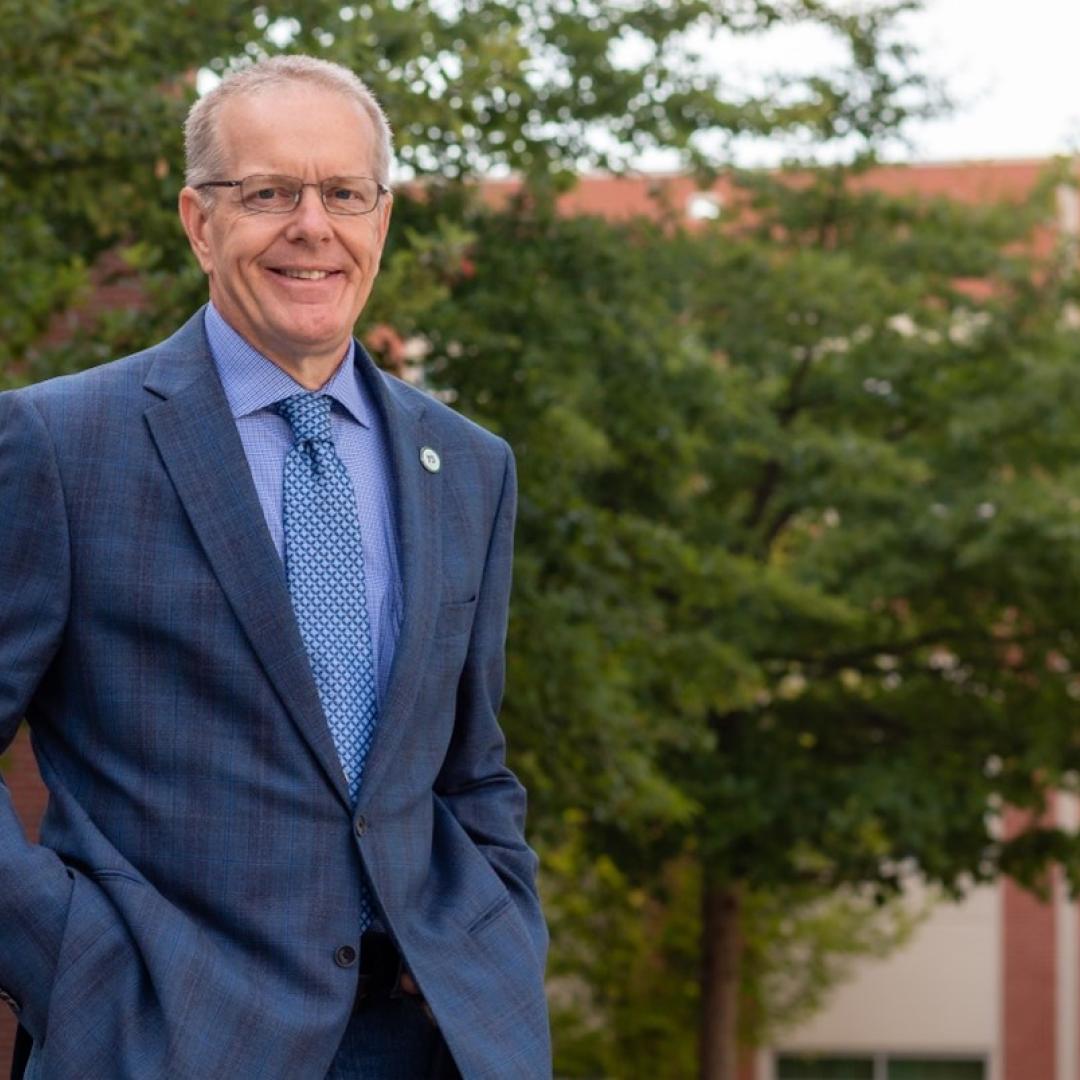
Filter News
Area of Research
News Type
News Topics
- (-) Bioenergy (23)
- (-) Biomedical (13)
- (-) Composites (4)
- (-) Cybersecurity (4)
- (-) Exascale Computing (8)
- (-) Frontier (8)
- (-) Fusion (12)
- (-) Sustainable Energy (22)
- 3-D Printing/Advanced Manufacturing (25)
- Advanced Reactors (4)
- Artificial Intelligence (26)
- Big Data (7)
- Biology (25)
- Biotechnology (7)
- Buildings (12)
- Chemical Sciences (12)
- Clean Water (5)
- Climate Change (14)
- Computer Science (45)
- Coronavirus (5)
- Critical Materials (1)
- Decarbonization (17)
- Education (1)
- Emergency (1)
- Energy Storage (14)
- Environment (41)
- Fossil Energy (2)
- Grid (8)
- High-Performance Computing (21)
- Isotopes (17)
- ITER (2)
- Machine Learning (6)
- Materials (20)
- Materials Science (23)
- Mathematics (2)
- Mercury (4)
- Microscopy (10)
- Nanotechnology (9)
- National Security (17)
- Net Zero (4)
- Neutron Science (21)
- Nuclear Energy (19)
- Partnerships (11)
- Physics (6)
- Polymers (5)
- Quantum Computing (11)
- Quantum Science (20)
- Security (5)
- Simulation (10)
- Space Exploration (5)
- Statistics (1)
- Summit (13)
- Transportation (17)
Media Contacts
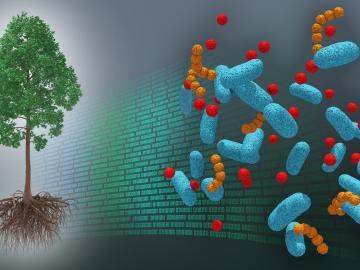
A first-ever dataset bridging molecular information about the poplar tree microbiome to ecosystem-level processes has been released by a team of DOE scientists led by ORNL. The project aims to inform research regarding how natural systems function, their vulnerability to a changing climate and ultimately how plants might be engineered for better performance as sources of bioenergy and natural carbon storage.
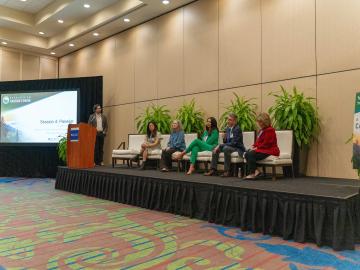
ORNL hosted the second annual Appalachian Carbon Forum in Lexington March 7-8, 2024, where ORNL and University of Kentucky’s Center for Applied Energy Research scientists led discussions with representatives from
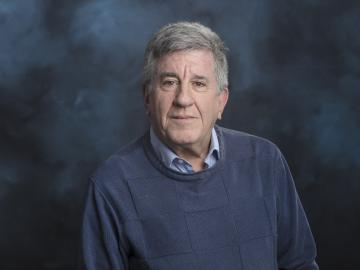
Chuck Greenfield, former assistant director of the DIII-D National Fusion Program at General Atomics, has joined ORNL as ITER R&D Lead.
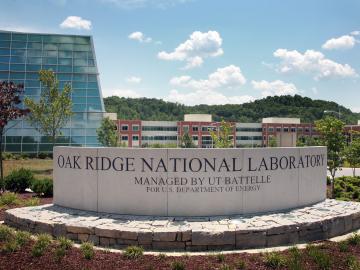
Two different teams that included Oak Ridge National Laboratory employees were honored Feb. 20 with Secretary’s Honor Achievement Awards from the Department of Energy. This is DOE's highest form of employee recognition.
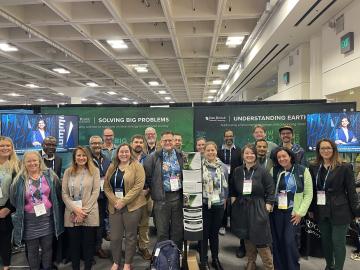
ORNL scientists and researchers attended the annual American Geophysical Union meeting and came away inspired for the year ahead in geospatial, earth and climate science.
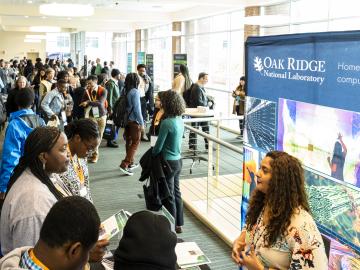
ORNL and the University of Tennessee, Knoxville, co-hosted the 2023 National Society of Black Physicists Annual Conference with the theme "Frontiers in Physics: From Quantum to Materials to the Cosmos.” As part of the three-day conference held near UT, attendees took a 30-mile trip to the ORNL campus for facility tours, science talks and workshops.
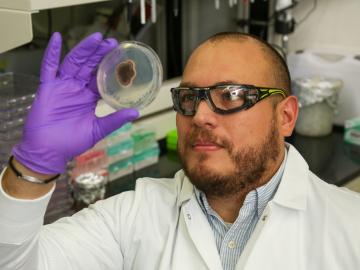
New computational framework speeds discovery of fungal metabolites, key to plant health and used in drug therapies and for other uses.

In summer 2023, ORNL's Prasanna Balaprakash was invited to speak at a roundtable discussion focused on the importance of academic artificial intelligence research and development hosted by the White House Office of Science and Technology Policy and the U.S. National Science Foundation.

A world-leading researcher in solid electrolytes and sophisticated electron microscopy methods received Oak Ridge National Laboratory’s top science honor today for her work in developing new materials for batteries. The announcement was made during a livestreamed Director’s Awards event hosted by ORNL Director Thomas Zacharia.
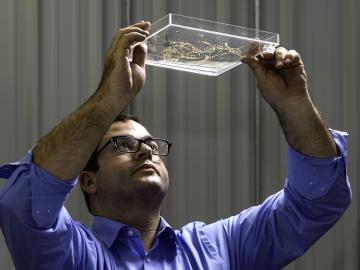
Biologist Larry York’s fascination with plant roots has spurred his research across four continents and inspired him to create accessible tools that enable others to explore the underground world.


